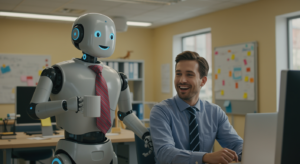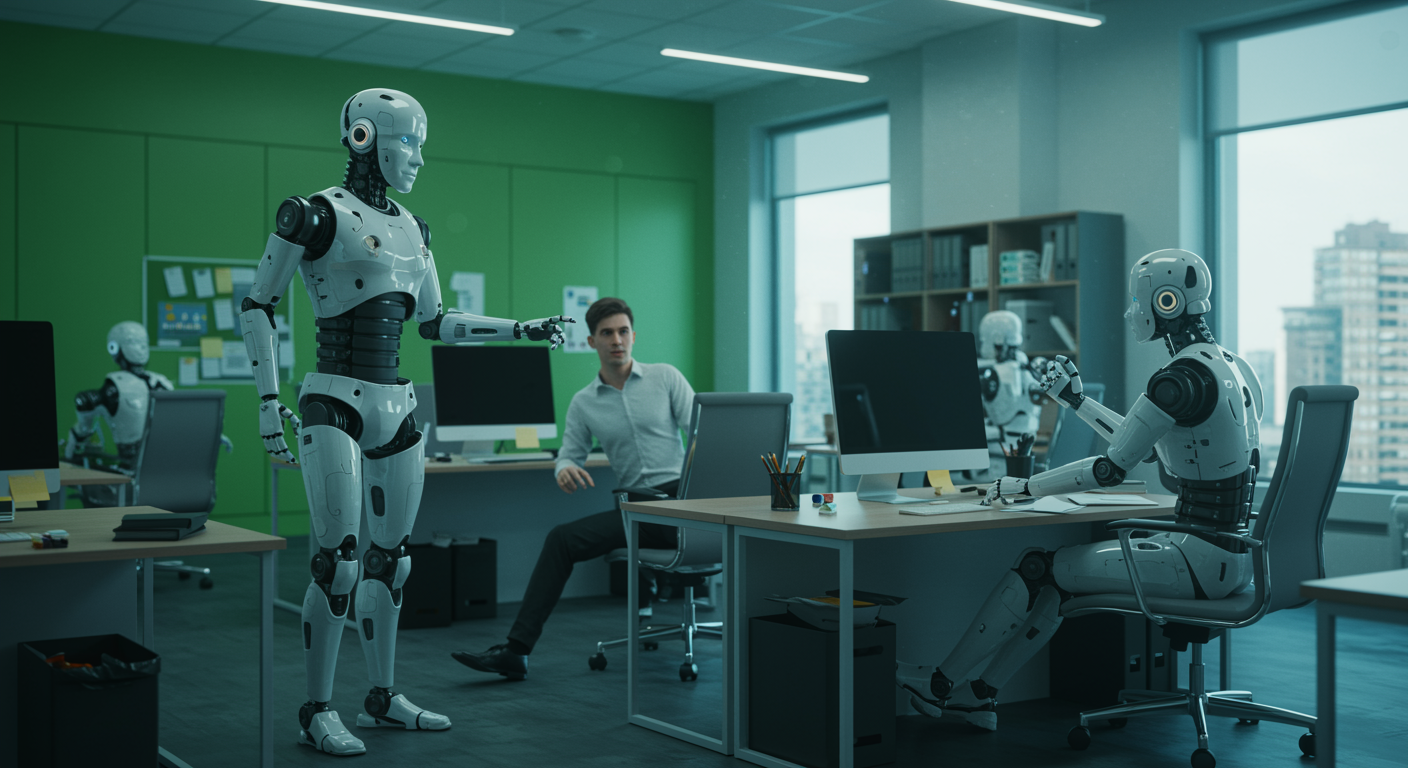Controversial AI Startup Aims to Replace All Human Workers
The Bold Vision of a Controversial AI Startup
Have you ever wondered if machines could truly take over the jobs we’ve always done? That’s exactly what a controversial AI startup like Artisan is proposing, as it pushes the boundaries of workplace automation with ambitious plans to swap out human roles for AI agents.
This idea isn’t just theoretical—it’s sparking heated discussions on job security, ethical dilemmas, and how our daily work lives might change forever. By challenging the status quo, these innovators are forcing us to rethink the future, but at what cost?
Picture this: billboards in bustling cities proclaiming “Stop Hiring Humans,” a slogan that’s already dividing opinions. A controversial AI startup such as Artisan, backed by significant funding, is at the forefront of this movement, aiming to automate everything from routine tasks to complex decision-making.
With AI-driven tools becoming more sophisticated, the debate over whether humans are becoming obsolete in the workforce is more urgent than ever.
Meet the Innovators: AI Startups Leading the Automation Revolution
Mechanize: Dreaming of a Fully Automated World
One key player in this space is Mechanize, founded by AI expert Tamay Besiroglu, which envisions a world where every job—from assembly line work to creative brainstorming—could be handled by AI.
This controversial AI startup is building the data frameworks and digital tools needed to make that happen, estimating a massive market potential of $18 trillion in U.S. wages alone. That’s not just big numbers; it’s a glimpse into how AI could reshape economies globally.
But here’s a thought: if AI takes over, what happens to the human touch in industries like healthcare or education? Mechanize argues it’s about boosting efficiency, yet critics worry about the broader implications, like widespread job displacement.
How These AI Startups Are Targeting Everyday Jobs
Then there’s Artisan, co-founded by Jaspar Carmichael-Jack and Sam Stallings, which takes a more practical angle by creating AI “employees” for repetitive tasks. Think of their AI, Ava, as a tireless virtual assistant that handles data entry, CRM updates, and even sales outreach without needing a coffee break.
With $25 million in funding, this controversial AI startup has gained attention through provocative ads that challenge businesses to “Hire Artisans, Not Humans.”
It’s a bold strategy, but it raises a question: Could this free up humans for more fulfilling work, like strategic planning or creative problem-solving? Artisan suggests yes, positioning AI as a partner rather than a threat, though not everyone is convinced.
Stirring the Pot: Marketing Tactics and Public Backlash
Artisan’s marketing campaigns have turned heads—and not always in a good way. Their “Stop Hiring Humans” billboards in San Francisco have drawn outrage, with some calling them dystopian. As a controversial AI startup, Artisan defends this as a way to spark vital conversations about the evolving workplace.
They even pulled off an April Fools’ stunt, “appointing” an AI as CEO, which highlighted their automation-first ethos. While it was clever marketing, it left many wondering: Is this just hype, or a sign of things to come? If you’re in tech, you might chuckle at the irony, but for workers fearing job loss, it’s anything but funny.
Which Industries Are Feeling the Heat?
AI startups like these are zeroing in on sectors ripe for automation, such as sales, customer support, and data processing. Jobs involving predictable workflows—like scheduling emails or basic research—are prime targets for AI agents from a controversial AI startup. As technology advances, even creative fields could be next, blending AI assistance with human ingenuity.
Imagine a small business owner using AI to handle admin tasks, freeing up time for client relationships. That’s the upside, but it also means workers in vulnerable roles need to adapt fast.

Balancing Act: Industry Views on AI’s Rise
| Perspective | Key Insights |
|---|---|
| Pro-Automation | Supporters say AI can cut costs and let humans focus on innovative work, as seen in campaigns from a controversial AI startup like Artisan. A TechCrunch report highlights the potential for 24/7 productivity. |
| Critics | Opponents warn of inequality and job losses, viewing these initiatives as tone-deaf to real-world impacts. |
| Balanced View | Experts advocate for ethical AI use and retraining programs to create a hybrid workforce. |
What do you think—could AI be the ultimate productivity booster, or are we risking too much?
The Economic Stakes: A $60 Trillion Opportunity?
With global wages topping $60 trillion, AI startups pushing to replace human workers see endless potential. Proponents promise economic growth, but skeptics point to risks like mass unemployment. It’s a high-stakes game that could redefine how we value work.
Preparing for an AI-Driven Future
Actionable Steps for Workers
Despite the buzz, most experts predict a hybrid future where AI handles the mundane, and humans shine in areas like empathy and creativity. If you’re worried about your job, start with reskilling—think online courses in digital literacy or emotional intelligence. Businesses should focus on ethical AI deployment to avoid pitfalls.
For instance, a marketing professional might use AI for data analysis but rely on their intuition for campaign strategies. The key? Stay adaptable and proactive.
Wrapping Up: Choices That Shape Tomorrow
In the end, startups like Mechanize and Artisan are pushing us to confront the realities of automation, ethics, and innovation. While their visions might seem extreme, they’re highlighting issues we can’t ignore. What are your thoughts on this? Share in the comments, explore more on our site, or check out related posts on AI ethics.
Frequently Asked Questions
Will AI Really Replace All Human Jobs?
Experts suggest AI will augment rather than fully replace roles, especially in creative fields.
Which Industries Are Most at Risk?
Sectors with repetitive tasks, like customer service, are the first targets for a controversial AI startup.
How Can Workers Prepare?
Focus on upskilling in areas like problem-solving to stay ahead of automation trends.
Sources
References are based on reliable sources for accuracy:
- IBM Think on AI assistants in the workforce: IBM Think Article
- TechCrunch on Mechanize launch: TechCrunch Report
- Just Think AI blog on backlash: Just Think AI
- Business Insider on Artisan funding: Business Insider
- RD World Online on Artisan’s AI CEO: RD World Online
- Other sources: RyRob, Windows Central, and a YouTube video for general insights.
